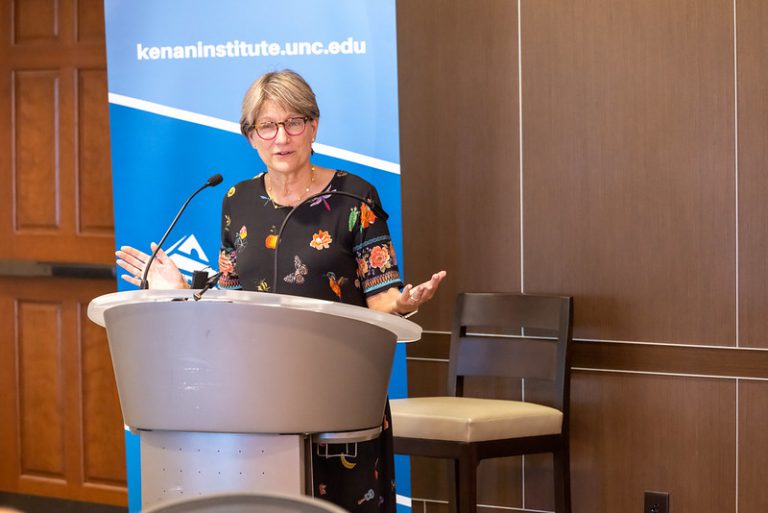
The Business Case for Childcare
The U.S. spends significantly less on child care than other developed nations, and the consequences of that spending became evident during the pandemic – particularly within underserved communities. In this week’s insight, our experts discuss why the U.S. should prioritize and fund early childhood education and care.
While access and quality of healthcare in the U.S. are shaped by several factors—location, work, insurance—a simple change can make a big difference for patients. According to a new study led by the institute-affiliated Center for the Business of Health Faculty Director Brad Staats, delivering mental and physical care at the same location can improve patient experience and care efficiency. This week’s Kenan Insight offers a chance for our experts to explore the findings of this new study.
A $2 million grant from the Truist Foundation will fund the Anchor Institutions Create Economic Resilience program or AICER, housed at CREATE, an economic development center at UNC Kenan-Flagler Business School's Frank Hawkins Kenan Institute of Private Enterprise.
CREATE Faculty Director and UNC Public Policy Professor Maryann Feldman recently served as a panelist examining conditions for technology-based economic development. While speaking to the President’s Council of Advisors on Science and Technology Sept. 29, Feldman cautioned against treating universities as lynchpins in the effort to drive regional innovation—noting reforms are needed to help university technology transfer offices recoup operating costs—and strongly advocated for new financing models to spur economic development in areas lacking venture capital support.

The Anchor Institutions Create Economic Resilience (AICER) initiative seeks to stimulate distressed economies through anchor institution-community partnerships.

Fixing the Leaky Gender Equality Pipeline
Much has been written about the disproportionate number of women who have suffered pandemic-related job losses during COVID-19, but a related consequence has not been as well explored: the serious disruption of women’s careers, particularly in fields in which “path dependence” matters for success. In this Kenan Insight, we examine this more subtle asymmetry in the pandemic’s impact as indicative of far broader issues for women’s advancement in the workplace.

Can Ed Tech Save Universities?
Prior to the COVID-19 outbreak, institutions of higher education were under immense pressure to live up to their value propositions, with underlying tensions that have been developing for years posing an existential threat to their financial viability. As colleges and universities move classes and operations online in response to the pandemic, questions arise as to what such changes hold not just for now, but for the long-term success of higher education. Can ed tech provide a way forward? Find out in this week’s Kenan Insight.

Community banks are the central financial institution in many places. They have the capacity to alleviate credit constraints of small firms. This may increase economic resilience, delaying or mitigating the effects of the Great Recession. We estimate how the county-level banking access and community bank market share affect both the timing and duration of the Great Recession. Using the Cox Proportional Hazards Model, we find that communities with a higher community bank market share are either less likely to experience recession conditions, or experience these conditions later. Using the Heckman Selection model, we confirm these results, and show that communities with a higher community bank market share are less likely to experience recession conditions. This research provides the first link between local financial institutions, and economic resilience.



Amid the Ruins: What Does Silicon Valley Bank’s Failure Mean For the U.S. Financial System?
A UNC Kenan-Flagler professor doesn’t foresee long-term effects from the failure of Silicon Valley Bank, given that other banks and financing companies can step in to replace SVB as an issuer of venture debt.